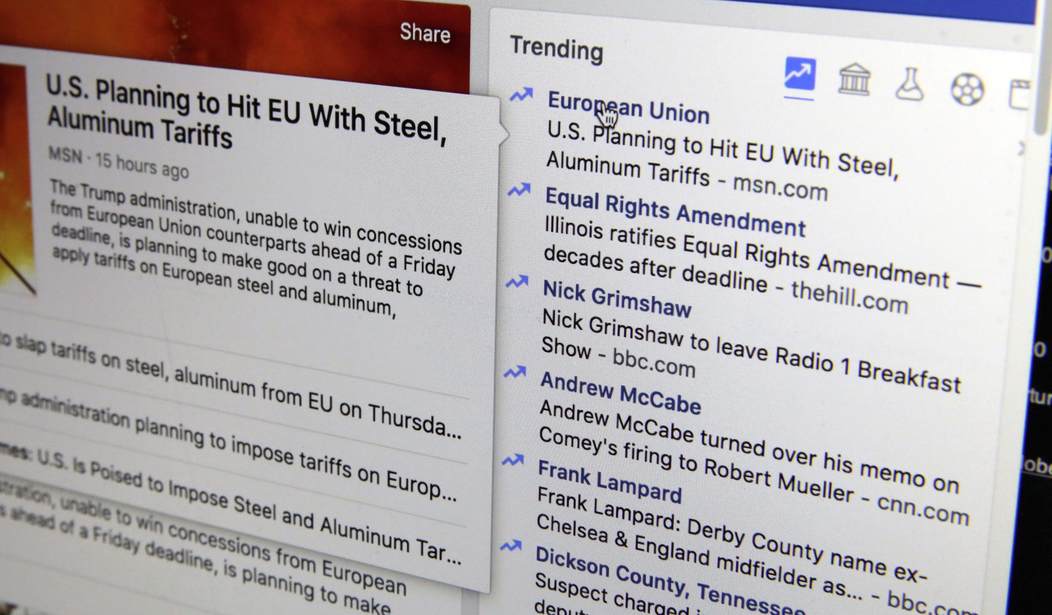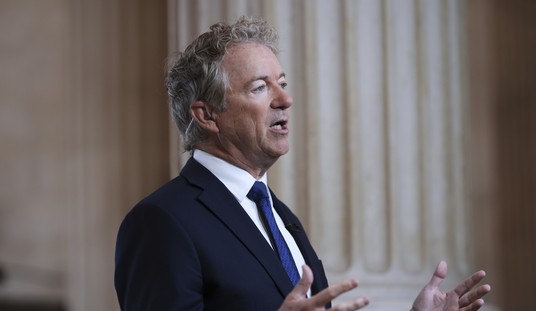WASHINGTON – Campbell Brown, head of global news partnerships at Facebook, said the original news content that Facebook is starting to roll out does not mean the company is becoming a news organization.
“We’re not becoming a news organization but we have a lot of news on the platform and we are a huge part of the news ecosystem, and it means we have a responsibility to the news ecosystem and we are responsible for the news that is on our platform. So with that in mind, we have a lot of work we are going to have to do over the course of this year that is really foundational work around defining what is and isn’t a news organization – it’s akin to what Google has done with Google News,” Brown said during a discussion organized by Axios about the future of media on Monday evening.
“We haven’t done that on Facebook yet and those are steps that we need to take, and I think having people with a background in media and with a background in journalism in the room to be part of these conversations is really essential. This is part of the push we’ve made this year toward more quality and a much stronger emphasis on quality around news on Facebook. We, at the start of the year, with ranking, turned down the dial on clickbait and sensationalism in a big way and a lot of news publishers were hurt by that,” she added. “If you were relying on clickbait, you’ve seen your traffic plummet because of these changes.”
Brown, a former CNN anchor, said Facebook has been giving a “boost” on its platform to national and local news outlets that it has defined as “broadly trusted” among the public.
“So the ratio of the kind of news you would see in the newsfeed changes, there would be less competition but, overall, more quality. This is a work in progress. None of this methodology is perfect,” Brown said. “Any time you make a change to ranking with an algorithm like the one that operates Facebook, there are going to be unintended consequences. So there’s a lot to work out, but I think this path toward more quality news and the emphasis on quality is the right one.”
Brown explained that Facebook is going to pay news outlets to produce about 20 original shows for the site. The first lineup includes Anderson Cooper of CNN, Jorge Ramos from Univision and Shepard Smith from Fox News as hosts.
“Part of the idea behind this is to just create a destination for news in newsfeed,” she said. “In a breaking news moment, it can be hard to find breaking news on Facebook. Part of our deal with ABC, who is also part of our original slate, is they will provide a live feed during breaking news moments.”
Brown said the ultimate goal for the news outlets involved with original content will eventually be the ability to “monetize” through ads on the platform and not rely on direct funding from Facebook.
“We aren’t there yet with the monetization piece. We just aren’t. And so with that in mind, I think it’s right for us to be funding these shows to give publishers a chance to experiment with how to do something that is unique to Facebook and unique to social media that really engages an audience so that they’re not just cutting up TV and putting it on Facebook,” she said. “It’s something that really is special and really different, and most publishers don’t have resources laying around to experiment right now.”
She described the new shows as “a test” that might not work out in the end.
“If this doesn’t work, we are going to change. And this is a tension that just exists constantly between media companies and technology companies. Technology companies live for change. They’re constantly changing,” she said. “It’s the nature of the beast, whereas if you are a media company, you want stability, you want to be able to plan and know what the future looks like.”
Brown said Facebook has been “very clear” and honest with publishers who are involved with the new shows.
“This cannot be your strategy for your future, for your future business model. You should do this with us if you are game to experiment, if you are game to test, knowing that if this doesn’t work and it’s not finding an audience we’re not going to keep doing it, and all we can do is be honest about that,” she said.
Facebook recently announced the elimination of the trending news section on the platform. PJM asked Brown about the reasoning behind the decision.
“To be honest, not a lot of people went to trending. It was not a major destination for news and with ‘Watch’ now becoming a focus for video news, it just makes more sense to have that be our focus,” she said.
The moderator of the discussion asked Brown for her response to a letter that a group of news publishers wrote to Facebook CEO Mark Zuckerberg expressing opposition to their new ad policy.
“We are concerned with Facebook’s inclusion of news content in its new policies to label all political and issue-based advertising, and to create a searchable archive for all such content. It is from our view of highest importance that the framework, which is currently being developed by Facebook, recognizes and values high-quality journalism separately and apart from political or issue-based advocacy found across the platform,” the letter reads.
In response to the letter, Brown said the company is planning two separate archives but there will be “labeling” for every ad.
“One would say political ads, one would say news content. Now, what this letter is asking is for an exemption for all news publishers when it comes to this sort of transparency and archiving, and that is something we are not going to do,” she said. “We believe transparency is the answer to addressing some of these problems. Nothing is more important to Facebook than election integrity given the challenges we have faced recently.”
Brown said Facebook is moving toward “more transparency” around all of the advertising that appears on the website.
“This is something that news publishers have pushed us to do, so I was very surprised to hear news publishers don’t want that kind of transparency,” Brown said.









Join the conversation as a VIP Member